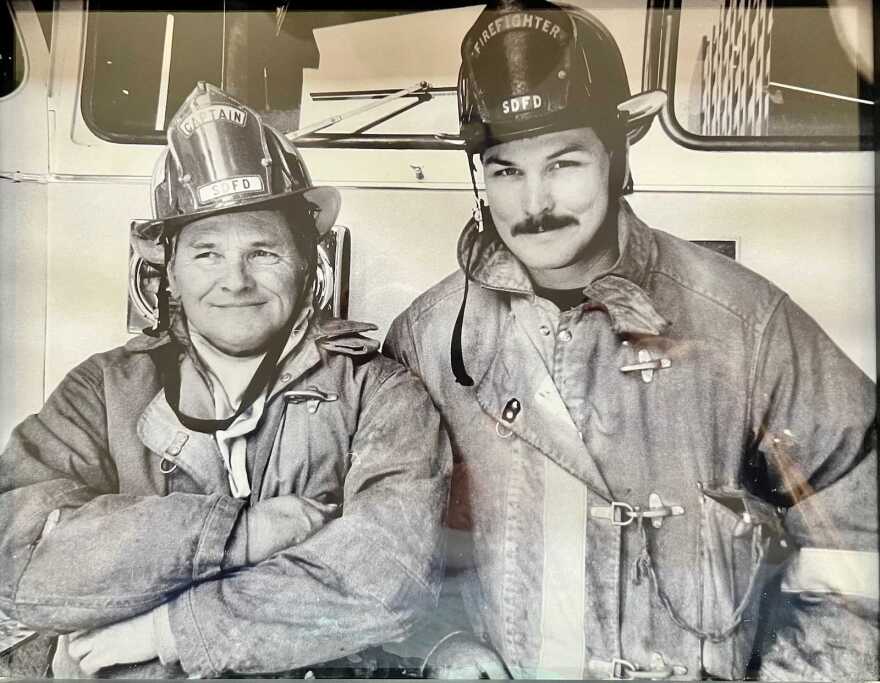Editor's note: This story talks about suicide.
The National Fallen Firefighters Foundation says suicide is three times more likely to happen in a fire department than a line-of-duty death. Some San Diego first responders are working to reduce the toll.
Ben Vernon is one of those first responders. Nine years ago, the firefighter-paramedic and his partner were attacked by a man with a knife during an emergency call.
Vernon recounted his injuries: “He stabbed me multiple times, severed a nerve in my back, punctured my lung, broke my rib.”
Both recovered from their physical injuries, but Vernon said after he went home, he started having nightmares about the attack. “I would wake up screaming, soaked in sweat, and I had only been in bed an hour,” he said.
He was suffering from Post-Traumatic Stress Disorder, or PTSD.
“PTSD is really an imbalance of brain function,” said Dr. Heechin Chae of the Institutes of Health in San Diego.
Chae is one of the leading experts in healing the brain after a traumatic brain injury or psychological trauma. He said it’s critical to understand that the body’s response to trauma causes an actual injury to the brain.
If You Need Help
If you or someone you know is experiencing thoughts of suicide, help is available 24 hours a day. Call or text the Suicide & Crisis Lifeline at 988, or go here for online chat.
For more help:
- Find 5 Action Steps for helping someone who may be suicidal, from the National Suicide Prevention Lifeline.
- Six questions to ask to help assess the severity of someone's suicide risk, from the Columbia Lighthouse Project.
- To prevent a future crisis, here's how to help someone make a safety plan.
He also said suppressing emotions while repeatedly being exposed to trauma can also cause trouble. “If you have a hard time resetting yourself after each day, or after each week, that's actually a good warning sign that you should get some help,” he said.
But asking for help can be difficult.
“It was always, ‘Hey, if anything bothers you, suck it up, buttercup,'” Vernon said.
Retired SDFR Captain Paul Alvernaz said he used that phrase himself during most of his career, calling it part of fire department culture.
“I was a tough captain that might belittle you if you told me you were going to come here (to the Institutes of Health),” he said.
Alvernaz said he had problems of his own, and lost a fellow firefighter to suicide. “To this day it haunts me that I spoke to him 15 days before he killed himself,” he said.

Now, Alvernaz welcomes firefighters to the Institutes of Health in an effort to keep others from taking their own lives. And Vernon has a new mission, to educate firefighters around the country about the importance of mental health while continuing to expand access to his own fire family at San Diego Fire-Rescue.
Vernon said they’ve come a long way, but he worries about those still not stepping forward.
“That's the scary number,” he said. “How many people are hurting silently that are not asking for help? That's the number that keeps me awake at night.”
If you or someone you love is struggling with thoughts of suicide, there is help available by dialing 988, the national Suicide and Crisis Lifeline. First responders can also reach out to their wellness program.






